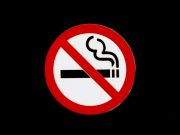According to experts in illicit trade, the same smugglers who drive the cigarette black market and facilitate money laundering and the trafficking of dangerous weapons, drugs and so forth, are now expanding their contraband activities to medical supplies.
Albamonte was part of an online roundtable on PPE fraud, which featured J.R. Helmig of the SAS Institute’s Global Security Intelligence Practice program and Steve Francis, assistant director for the Global Trade Investigations Division, with Homeland Security Investigations (HSI).
Only days before the roundtable, U.S. law enforcement entities announced a series of civil and criminal complaints against ISIS, alleging it set up an online PPE scam targeting U.S. hospitals, nursing homes and first responders in order to raise funds. “There are lots of new emerging fraud schemes, and oftentimes those fraud schemes are directed against those in the population that are most at risk,” said J.R. Helmig. “They may not have the savviness to recognize a fraud scheme, or they may be so desperate that they don’t care.”
“What we realized early — in March and April — is that this is much bigger than intellectual property or fraudulent schemes,” said Francis. “We saw a surge of unapproved medical devices and home-health test kits that were fraudulent, counterfeit and brought into the United States and people were not sure whether they were legitimate or not.”
Black market tobacco represents 10 to 12%of tobacco consumption
Meanwhile, Albamonte pointed out that black market tobacco represents a significant “10 to 12 percent of tobacco consumption, with an estimated illicit volume of up to 600 billion illegal cigarettes — but black-market tobacco doesn’t exist in a vacuum.”
Sadly, several public health and tobacco harm reduction experts have also been expressing their concern about such trends, explaining that the various vape and tobacco bans being set in place across the globe in response to the current Covid-19 crises, are just fuelling the black market further.
A significant problem in Massachusetts
Earlier this month, testimony at the Massachusetts Department of Revenue’s Illegal Tobacco Task Force discussed data on how e-cig users are responding to vaping bans. Non-surprisingly the task force concluded the flavour ban implemented locally, will lead to “an increase in smuggling activity and black-market sales.”
“I’m concerned that placing an added burden and tasking law enforcement with the enforcement of flavor bans will only stand to create a significant new black market, this includes both cross-state border smuggling and counterfeit tobacco,” said Charles Giblin, a retired special agent in charge of the New Jersey treasury’s office of criminal investigation.
South Africa’s smokers responded to local ban by turning to black market
Similarly, a recent study conducted at the University of Cape Town, which surveyed over 16,000 people on how they were being affected by the tobacco ban, found that smokers were smoking just as much as before the ban and just changed where they were getting their preferred tobacco products from.
“Our findings suggest that the ban on cigarette sales is failing in what it was supposed to do,” reported the researchers. “While the original intention of the ban was to support public health, the current disadvantages of the ban may well outweigh the advantages. Smokers are buying cigarettes in large quantities, despite the lockdown, and unusual brands are becoming prevalent.”
Read Further: Inside Sources













